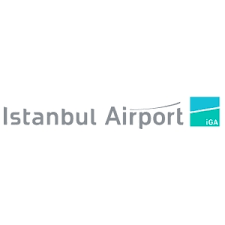Interview with MELIH MENGÜ
| Mr. Melih Mengü is Advisor to Chief Executive Officer at iGA Istanbul Airport and has had extensive professional experience in the financial services industry for more than 30 years. Before joining iGA and the aviation industry, he has held CEO and C-level positions in investment and commercial banks, as well as leasing companies. He demonstrated a remarkable history of work in Corporate Banking, Leasing, Factoring, Project Finance, IPOs, M&As, Start-Ups, etc. Mr. Mengü joined iGA in January 2018 as the Chief Business Development Officer. He participated in the mission of establishment of commercial activities in iGA namely Leasing of Commercial Areas, Concessions such as Duty-Free and Food Beverage etc., Car Parks Management, Business Development, and so on. Additionally, he was in charge of the management of Cargo City, Catering, MRO and Ground Handling districts. |
1. What do you consider the main disrupters for Airports development? Disrupters for Airport development are generally forcing companies to huge opportunities. As we all know, it presents new techniques for seamless travel such as crowdfunding or big data mining becoming available in every level of Airport operation. In the new era, the most important goal is to carry out all steps of the airline journey in a fully automated manner. In the upcoming period, one of the most important agenda items of air transportation will be to carry out the controls for each process in which the passenger is involved, using contactless biometric technologies in a safe, fast and comfortable manner. One of the important issues in this regard is for governments to make the necessary regulations in the use of biometric data within the scope of new generation operating systems. Besides, airlines and airports must work effectively in this process. Autonomous vehicles can now take part in airport operations by being equipped with a software and hardware set that can detect location and environment with the help of advanced sensor and radar technologies. These vehicles can also take the passenger from various points within the airport to the gates or from the gates to the security control point. These vehicles should be constantly redeveloped, according to current needs. That is an extremely costly effort, and it is of great importance that the aviation authorities of the countries, support companies and airports working on autonomous vehicle projects. Moreover, the use of building information modelling (BIM) and cloud computing yields a data-rich, environmentally friendly and lean development process for large infrastructure projects like Istanbul Airport. The use of drones, connected construction equipment and mobile devices gave us a better understanding of overall construction status while enabling better results in construction quality. Prefabrication in airport construction is important to meet the schedule, and it is becoming more common. Advances in computational design and the use of 3D printers as construction tools are some of the other subjects we are closely following. Besides, the digitalization of infrastructure and assets as multi-dimensional parametric models creates a digital twin of the airport. Digital twins are virtual representations of the physical environment where the real-time status of the airport is observed through the integration of multiple systems like SCADA, BMS, ERP, CCTV, sensors etc. And simulations can run to evaluate development alternatives. Cloud-based facilities/asset management tools integrate BIM and GIS technologies for efficient technical services solutions. All pre-Covid-19 scenarios showed continuous growth in the industry, mainly in Asia & Africa, but Europe was also performing well. All the plans, which airports had developed for future development, needs to be revised due to the Covid-19 pandemic. The market is going through consolidation, especially in Europe, where we have had overcapacity for many years. Every time an airline pulled out or went bankrupt at one of the main airports in Europe, the airport ended up getting much higher capacity from new airlines, and this trend will come to a standstill. Global airports are facing difficult financial times. According to the ACI Europe report, an estimated 193 airports face insolvency in the coming months if passenger traffic does not start to recover by the end of 2020. Regional airports with one large carrier or with few hub connections may end up seeing limited traffic due to loss of connections. Large hubs with overcapacity will see consolidation and may rethink the pre-Covid-19 network. Every crisis brings new opportunities, and networks post-Covid-19 may be different from the opening up of underserved markets and closer to previously strong markets. We see great opportunities to develop Istanbul Airport’s geographical position between East-West & North-South, with increased frequencies on existing routes and opening up of new services, with existing and new airlines for both passenger and cargo. 2. Tell us about the key areas of the Logistics/Supply chain where Aviation/Aerospace can improve the most and why? During the pandemic, the importance of the aviation industry within the whole supply chain process has been recognized clearly. Beneficiaries of air cargo have a strong demand due to high-speed delivery. Therefore, for freighters, connections, capacities, pharma and perishable freight capabilities are essential. While a quick ramp, handling, storage capabilities, as well as a geographical location in parallel to its proximity to external and internal production and consumption markets are also relevant for airports. In these respects, the Istanbul Airport was designed and operating during the last two years to cover all these necessities. Such as; Istanbul Airport is a prime hub at the intersection of Asia, Europe, the Middle East and Africa. It has been serving more than 300 destinations with a significant share of Turkish Airlines and Turkish Cargo. Within 3 hours of flight distance, there are 120 countries, 60 capital cities and 130 destinations. For air cargo, companies flying to and from Istanbul provides a natural advantage. Besides geographical advantage airport, infrastructure and service quality is also important for speedy air cargo, and it secures high operational productivity. Istanbul Cargo City has been located in a north-south direction between two of its three runways, number 1 and 2. Landside and airside operations are being operated in the same district. Very short taxi times are a significant advantage. With its three runways having a minimum slot capacity of 120 in an hourly peak time. Parking capacities for 38 narrow body and 29 wide-body aircraft in max 50m distance to bounded warehouses. Similar proximity for trucks on the landside as well. There are wide operational areas for loading and unloading trucks in docking areas. Access to cargo city from landside by two tunnels provides zero traffic. Belly cargo can be carried very fast to/from cargo city from passenger terminal through tunnels on the airside as well. The total parking capacity in cargo city is 5000 vehicles. Having all related parties such as all Customs facilities, Bounded and Unbounded Warehouses, Transportation Companies, ground handling companies as well as Passport gate for freighter crew is an advantage for fast operation. Considering all these advantages, a wide-body cargo aircraft can easily complete its operations from landing to take off in 2 to 2.5 hours. The E-commerce market is expected to continue the growth; there will be a higher demand to move cargo more quickly and efficiently. To highlight main areas, airports need to focus on being cargo-friendly airports, focus on digitalization and increasing efficiency. To become a cargo-friendly airport: dedicated terminals for freight forwarders will give them direct control over their freight. Good infrastructure is required for a cargo-friendly airport, in addition to high-quality customer service, 24/7 operating hours and quick customs clearance to avoid delays. Istanbul Airport provides large warehousing capacities for international e-commerce companies. The Air Cargo industry is one of the industries with too many manual processes in most airports. The solution is digitalization, avoiding manual data operations and creating a common supply chain to share the data. So, end-to-end paperless transportation processes for all air cargo. To focus on efficiency and collaboration, İGA is currently working on an Airport Cargo Community System, which will provide an e-platform to forwarders, customs, brokers, airlines, transporters etc. This e-platform will be hosted by İGA and operated by a third-party service provider. All stakeholders serving at Istanbul Airport Cargo City will be controlling, monitoring and managing their business via this platform. The system targets to reduce consumed time during all paperwork done by those stakeholders. Parties will directly enter all needed information for their operation to the system. And on the other hand, state authorities such as customs will be able to conduct their paper inspections via e-documents. Here are some features and key points of the Airport Cargo Community System of İGA; 3. What is your opinion about positioning WOF EXPO in the Central and Eastern Europe region? It is refreshing to see WOF EXPO in Central and Eastern Europe. This market has mainly been dependent on hub links to get their freight out to the world via belly cargo. Also, with WOF EXPO in the region, it will definitely help to promote the regions’ potential for full freight. We believe conferences like World of Freight EXPO will give a terrific opportunity to the people in the Cargo industry. As we know that more than 250 exhibitors are involved in supply chain solutions, and more than 9,000 people from many different sectors will attend the conference, including seminars and panel discussions with leading speakers in 2021. 4. What will be the impact of Covid-19 for further business development in your core business? We are continuing our efforts to design an end-to-end fully digital passenger experience that will take the digital customer journey, which we have already worked on and developed to a certain point already before the outbreak of Covid-19, to the next level. Covid-19 has accelerated our efforts in certain areas, especially on creating contactless journey points. In this context, we are making use of chatbots, voice assistants, mobile payment, biometric solutions and Augmented Reality (AR) technologies. By integrating all these technology solutions with our big data management platforms, we will generate a range of touches, based on these trend technologies to recognize the passenger even before travel, mitigate their travel concerns, and start to offer solutions suited to the passengers’ habits and needs, even before they arrive at the airport. And at the same time allows for a much more enjoyable, comfortable, contactless and healthy airport experience. We plan to mainstream our biometric applications. In particular, Istanbul Airport passenger processing systems will be reinforced with biometric solutions that incorporate face recognition technology. Smart cameras will retrieve passengers’ biometric face data from check-in desks and CUSS kiosks and process them for use at various control points such as Security, Border Control, Lounges, retail stores and boarding gates. Besides, biometric face data will be used within the system through mobile devices. Once unique identification information is formed comprising a combination of “biometric data,” “flight information,” and “passport or identity card information,” passengers will not be required to present any documents while travelling at the airport. Thus, passengers will get a convenient airport experience. The time and interaction they have at control points will be reduced, and there will be a positive increase in their interest in commercial spaces, which in return will enable them to have a pleasant time at the airport. In addition, we will be establishing our marketplace platform, “istbuy.com” in the coming days. This platform will contain infrastructures like AR and AI, which are among today’s latest technologies. Thanks to this platform, we will display and sell all the products and services available at Duty-Free before our passengers arrive at the airport. This project will give passengers an idea about what kind of products and services they might find at the airport and lessens their concerns about unexpected interactions during their shopping experience at the airport. To sum up, since we had already focused on creating digital journey and touchpoints at the airport before the outbreak, we feel the effect of Covid-19 as an accelerator for implementing this strategy. Passengers have become more aware of digital technologies, and their acceptance rate of new processes has increased due to this new normal. We try to position ourselves where we understand passenger needs and transform that kind of attraction into a new style of engagement again. We try to prioritize passenger centricity, communication, and of course, digitalize most of the processes where we give passengers more choice, more control over the experience they want to receive at the airport. iGA is currently working on an Airport Cargo Community System, which will provide an e-platform to forwarders, customs, brokers, airlines, transporters etc. This e-platform will be hosted by iGA and operated by a third-party service provider. All stakeholders serving at Istanbul Airport Cargo City will be controlling, monitoring, and managing their business via this platform. The system targets to reduce consumed time during all paper works done by those stakeholders. Parties will directly enter all needed information for their operation to the system. On the other hand, state authorities such as customs will be able to conduct their paper inspections via e documents. Here are some features and key points of the Airport Cargo Community System of iGA, such as truck slot/dock booking, e-booking, shipment tracking, truck tracking at the airport, electronic receipt of shipment of information from shippers, shipment tracking, e-booking with airlines, online terminal charges payments, e-delivery orders, online terminal charges collection etc. As a global hub airport, we continuously work closely with government agencies, health authorities, airlines and other related global aviation entities such as International Civil Aviation Organization (ICAO), Airport Council International (ACI) and European Union Aviation Safety Agency (EASA) to safely handle with the situation. Coordination between the key stakeholders of airlines, especially for us with Turkish Airlines, would be a key issue. Countries must agree on how to normalize the world, as we see individual decisions being made all around the world. We need common standards to deal with the Covid-19 pandemic. We need to blend the standards announced by the ACI, EASA, IATA and ICAO, with the patronage of the World Health Organization. It is so important to take proactive and strategic positioning during these times to operate appropriately during the post-Covid-19 era. |
 | iGA Istanbul Airport
Inaugurated on October 29, 2018, Istanbul Airport has been serving passengers in full capacity since April 6, 2019. The operation of Istanbul Airport, built on 76,5 million square meters, has been undertaken by iGA Airport Operation Inc. for 25 years. Once all phases are operational, the facility is expected to achieve a capacity of 200 million passengers.

iGA Istanbul Airport.com |

